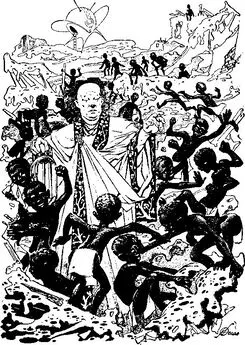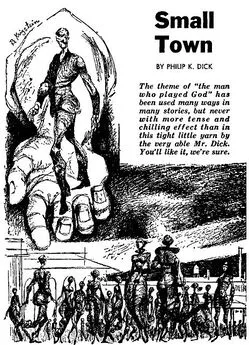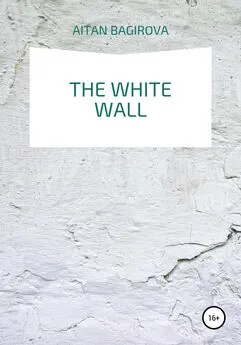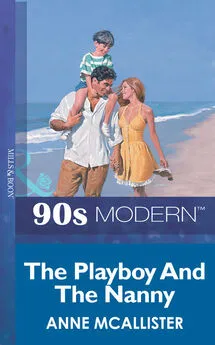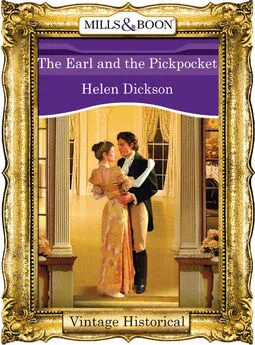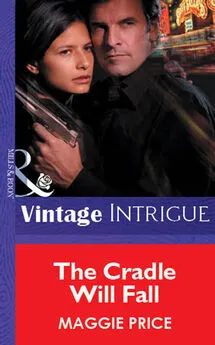Philip Dick - The Turning Wheel
- Название:The Turning Wheel
- Автор:
- Жанр:
- Издательство:неизвестно
- Год:неизвестен
- ISBN:нет данных
- Рейтинг:
- Избранное:Добавить в избранное
-
Отзывы:
-
Ваша оценка:
Philip Dick - The Turning Wheel краткое содержание
or might the great old culture be superimposed upon what was left of western technology?
The Turning Wheel - читать онлайн бесплатно полную версию (весь текст целиком)
Интервал:
Закладка:
"Nothing for me,” Sung-wu muttered grumpily, as he took aseat opposite the Indian; "I’m here on an official survey.”
The Indian nodded faintly. "Oh?”
"Birth and death rates.” Sung-wu hesitated, then leaned toward the Indian. "I insist you send those two Caucs away; what I have to say to you is private.”
The Indian showed no change of expression; his broad face was utterly impassive. After a time he turned slightly. "Please go down to the street level,” he ordered. "As you will.”
The two Caucs got to their feet, grumbling, and pushed past the table, scowling and darting resentful glances at Sung-wu. One of them hawked and elaborately spat over the railing, an obvious insult.
"Insolence!” Sung-wu choked. "How can you allow it? Did you see them? By Elron, it’s beyond belief!”
The Indian shrugged indifferently—and belched. "All men are brothers on the wheel. Didn’t Elron Himself teach that, when He was on earth?”
"Of course. But—”
"Are not even these men our brothers?”
"Naturally,” Sung-wu answered haughtily, "but they must know their place; they’re an insignificant class. In the rare event some object wants fixing, they are called; but in the last year I do not recall a single incident when it was deemed advisable to repair anything. The need of such a class diminishes yearly; eventually such a class and the elements composing it—”
"You perhaps advocate sterilization?” the Indian inquired, heavy- lidded and sly.
"I advocate something. The lower classes reproduce like rabbits; spawning all the time—much faster than we Bards. I always see some swollen-up Cauc woman, but hardly a single Bard is born, these days; the lower classes must fornicate constantly.”
"That's about all that’s left them,” the Indian murmured mildly. He sipped a little lime juice. "You should try to be more tolerant.” "Tolerant? I have nothing against them, as long as they—”
"It is said,” the Indian continued softly, "that Elron Hu, Himself, was a Cauc.”
Sung-wu spluttered indignantly and started to rejoin, but the hot words stuck fast in his mouth; down the mud street something was coming.
SUNG-WU demanded, "What is it?” He leaped up excitedly and hurried to the railing.
A slow procession was advancing with solemn step. As if at a signal, men and women poured from their rickety huts and excitedly lined the street to watch. Sung-wu was transfixed, as the procession neared; his senses reeled. More and more men and women were collecting each moment; there seemed to be hundreds of them. They were a dense, murmuring mob, packed tight, swaying back and forth, faces avid. An hysterical moan passed through them, a great wind that stirred them like leaves of a tree. They were a single collective whole, a vast primitive organism, held ecstatic and hypnotized by the approaching column.
The marchers wore a strange costume: white shirts, with the sleeves rolled up; dark gray trousers of an incredibly archaic design, and black shoes. All were dressed exactly alike. They formed a dazzling double line of white shirts, gray trousers, marching calmly and solemnly, faces up, nostrils flared, jaws stern. A glazed fanaticism stamped each man and woman, such a ruthless expression that Sung-wu shrank back in terror. On and on they came, figures of grim stone in their primordial white shirts and gray trousers, a frightening breath from the past. Their heels struck the ground in a dull, harsh beat that reverberated among the rickety huts. The dogs woke; the children began to wail. The chickens flew squawking.
"Elron!” Sung-wu cried. "What's happening?'’
The marchers carried strange symbolic implements, ritualistic images with esoteric meaning that of necessity escaped Sung-wu. There were tubes and poles, and shiny webs of what looked like metal. Metal! But it was not rusty; it was shiny and bright. He was stunned; they looked—new.
The procession passed directly below. After the marchers came a huge rumbling cart. On it was mounted an obvious fertility symbol, a corkscrew-bore as long as a tree; it jutted from a square cube of gleaming steel; as the cart moved forward the bore lifted and fell.
After the cart came more marchers, also grim-faced, eyes glassy, loaded down with pipes and tubes and armfuls of glittering equipment. They passed on, and then the street was filled by surging throngs of awed men and women, who followed after them, utterly dazed. And then came children and barking dogs.
The last marcher carried a pennant that fluttered above her as she strode along, a tall pole, hugged tight to her chest. At the top, the bright pennant fluttered boldly. Sung-wu made its marking out, and for a moment consciousness left him. There it was, directly below; it had passed under his very nose, out in the open for all to see—unconcealed. The pennant had a great T emblazoned on it.
"They—” he began, but the obese Indian cut him off.
The Tinkerists,” he rumbled, and sipped his lime juice.
SUNG-WU grabbed up his briefcase and scrambled toward the stairs. At the bottom, the two hulking Caucs were already moving into motion. The Indian signalled quickly to them. "Here!” They started grimly up, little blue eyes mean, red-rimmed and cold as stone; under their pelts their bulging muscles rippled.
Sung-wu fumbled in his cloak. His shiver-gun came out; he squeezed the release and directed it toward the two Caucs. But nothing happened; the gun had stopped functioning. He shook it wildly; flakes of rust and dried insulation fluttered from it. It was useless, worn out; he tossed it away and then, with the resolve of desperation, jumped through the railing.
He, and a torrent of rotten wood, cascaded to the street. He hit, rolled, struck his head against the corner of a hut, and shakily pulled himself to his feet.
He ran. Behind him, the two Caucs pushed after him through the throngs of men and women milling aimlessly along. Occasionally he glimpsed their white, perspiring faces. He turned a corner, raced between shabby huts, leaped over a sewage ditch, climbed heaps of sagging debris, slipping and rolled and at last lay gasping behind a tree, his briefcase still clutched.
The Caucs were nowhere in sight. He had evaded them; for the moment, he was safe.
He peered around. Which way was his ship? He shielded his eyes against the late-afternoon sun until he managed to make out its bent, tubular outline. It was far off to his right, barely visible in the dying glare that hung gloomily across the sky. Sung-wu got unsteadily to his feel and began walking cautiously in that direction.
He was in a terrible spot; the whole region was pro-Tinkerist— even the Chamber-appointed Manager. And it wasn't along class lines; the cult had knifed to the top level. And it wasn’t just Caucs, any more; he couldn’t count on Bantu or Mongolian or Indian, not in this area. An entire countryside was hostile, and lying in wait for him.
Elron, it was worse than the Arm had thought! No wonder they wanted a report. A whole area had swung over to a fanatic cult, a violent extremist group of heretics, teaching a most diabolical doctrine. He shuddered—and kept on, avoiding contact with the farmers in their fields, both human and robot. He increased his pace, as alarm and horror pushed him suddenly faster.
If the thing were to spread, if it were to hit a sizable portion of mankind, it might bring back the Time of Madness.
THE SHIP was taken. Three or four immense Caucs stood lounging around it, cigarets dangling from their slack mouths, white-faced and hairy. Stunned, Sung-wu moved back down the hillside, prickles of despair numbing him. The ship was lost: they had got there ahead of him. What was he supposed to do, now?
It was almost evening. He’d have to walk fifty miles through the darkness, over unfamiliar, hostile ground, to reach the next inhabited area. The sun was already beginning to set, the air turning cool; and in addition, he was sopping wet with filth and slimy water. He had slipped in the gloom and fallen in a sewage ditch.
He retraced his steps, mind blank. What could he do? He was helpless; his shiver-gun had been useless. He was alone, and there was no contact with the Arm. Tinkerists swarming on all sides; they’d probably gut him and sprinkle his blood over the crops—or worse.
He skirted a farm. In the fading twilight, a dim figure was working, a young woman. He eyed her cautiously, as he passed; she had her back to him. She was bending over, between rows of corn. What was she doing? Was she—good Elron!
He stumbled blindly across the field toward her, caution forgotten.
"Young woman! Stop! In the name of Elron, stop at once!”
The girl straightened up. "Who are you?”
Breathless, Sung-wu arrived in front of her, gripping his battered briefcase and gasping. "Those are our brothers! How can you destroy them? They may be close relatives, recently deceased." He struck out and knocked the jar from her hand; it hit the ground and the imprisoned beetles scurried off in ail directions.
The girl's cheeks i lushed with anger. "It took me an hour to collect those!”
' You were killing them! Crushing them!” He was speechless with horror. "I saw you!”
"Of course.” The girl raised her black eyebrows. 'Thcy gnaw the corn.”
"They" re our brothers!" Sung-wu repeated wildly. "Of course they gnaw the corn; because of certain sins committed, the cosmic forces have—” He broke off, appalled. "Don’t you know? You’ve never been told?”
THE GIRL was perhaps sixteen. In the fading light she was a small, slender figure, the empty jar in one hand, a rock in the other. A tide of black hair tumbled down her neck. Her eyes were large and luminous; her lips full and deep red; her skin a smooth copper-brown—Polynesian, probably. He caught a glimpse of firm brown breasts as she bent to grab a beetle that had landed on its back. The sight made his pulse race; in a flash he was back three years.
"What’s your name?” he asked, more kindly.
''Frija.”
"How old are you?”
"Seventeen.”
"I am a Bard; have you ever spoken to a Bard before?”
"No," the girl murmured. "I don’t think so.”
She was almost invisible in the darkness. Sung-wu could scarcely see her, but what he saw sent his heart into an agony of paroxysms: the same cloud of black hair, the same deep red lips. This girl was younger, of course—a mere child, and from the Farmer class, at that. But she had Liu’s figure, and in time she’d ripen—probably in a matter of months.
Ageless, honeyed craft worked his vocal cords. "I have landed in this area to make a survey. Something has gone wrong with my ship and I must remain the night. I know no one here, however. My plight is such that—”
"Oh,” Frija said, immediately sympathetic. "Why don’t you stay with us, tonight? We have an extra room, now that my brother's away.”
"Delighted,” Sung-wu answered instantly. "Will you lead the way? I’ll gladly repay you for your kindness.” The girl moved off toward a vague shape looming up in the darkness. Sung-wu hurried quickly after her. "I find it incredible you haven't been instructed. This whole area has deteriorated beyond belief. What ways have you fallen in? We’ll have to spend much time together; I can see that already. Not one of you even approaches clearness—you’re jangled, every one of you.”
"What does that mean?” Frija asked, as she stepped up on the porch and opened the door.
"Jangled?" Sung-wu blinked in amazement. "We w ill have to study much together.” In his eagerness, he tripped on the top step, and barely managed to catch himself. "Perhaps you need complete instruction; it may be necessary to start from the very bottom. I can arrange a stay at the Holy Arm for you—under my protection, of course. Jangled means out of harmony with the cosmic elements. How can you live this way? My dear, you’ll have to be brought back in line with the divine plan!”
Читать дальшеИнтервал:
Закладка:
